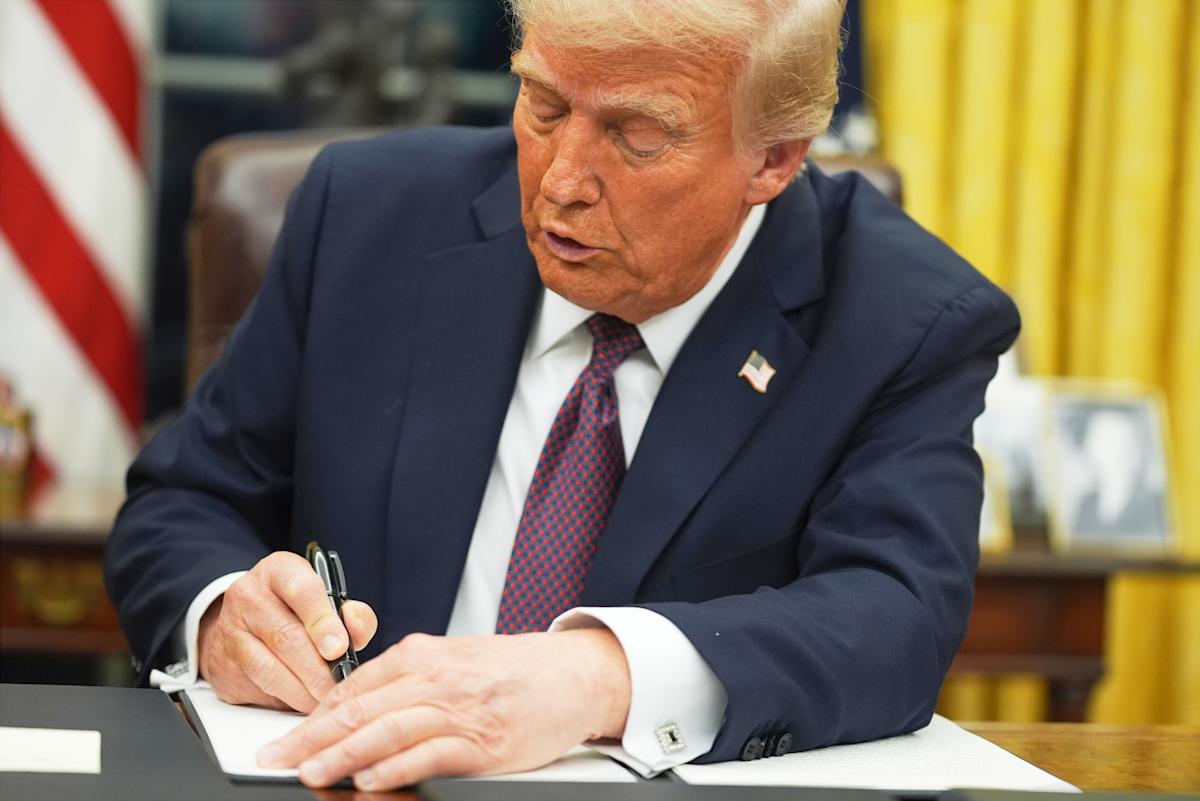Tariffs on Brazilian Goods Threaten American Breakfast Prices and Exports
- Small Town Truth

- Jul 12
- 3 min read

U.S. Tariff Threats Could Affect Breakfast Prices and Brazilian Exports In a significant development for international trade, President Donald Trump has proposed a substantial increase in import taxes on various Brazilian goods—potentially reaching 50%. This move, which is expected to have a direct effect on American consumers, especially concerning staples like coffee and orange juice, could raise breakfast costs across the United States if an agreement is not reached by August 1. The proposed tariffs, announced in a letter on Wednesday, would not only impact popular breakfast items but also Brazilian beef and regional airlines. Brazilian President Luiz Inácio Lula da Silva responded quickly to Trump’s letter, indicating there would be reciprocal actions from Brazil if the new import taxes were enforced. Trump's motivations for this tariff increase appear to be politically driven, particularly in light of a Supreme Court trial in Brazil concerning former president Jair Bolsonaro, a notable ally of his. Bolsonaro has faced charges related to alleged attempts to subvert the 2022 election results. The ongoing prosecution of U.S.-based social media firms for non-compliance with local laws was also cited by Trump as a justification for the heightened tariffs. Statistics from the U.S. Census Bureau reveal that the United States enjoyed a trade surplus of $6.8 billion with Brazil last year, indicating the importance of this trading partnership. However, a coalition of Brazilian exporters, politicians, and organizations, many aligned with Bolsonaro's interests, have vocally opposed Trump's plan. Coffee, beef, and orange juice representatives have mobilized to defend the sector, emphasizing the potential economic fallout. Brazil’s agribusiness caucus declared in a statement, “These new tariffs produce direct effects and hit Brazil's agribusiness, impacting the exchange rate, in the rise of the cost of imported inputs and in the competitiveness of Brazilian exports.” The Impact on American Breakfast In public statements following Trump's tariff proposal, Lula noted that the United States has maintained a trade surplus with Brazil exceeding $410 billion over the past 15 years. Notably, orange juice and coffee stand out as two of the most significant Brazilian exports to the U.S. market. The American coffee market relies heavily on imports, with Brazil accounting for approximately 30% of all U.S. coffee supply, followed by Colombia and Vietnam. Recent climate challenges have further strained global coffee reserves, which may exacerbate any price increases further fueled by tariffs. Marcos Matos, executive director of Cecafé, Brazil's coffee exporters council, expressed concern that the initial 10% tariff imposed earlier in the year was manageable. However, he asserts that the proposed hike to 50% would represent a serious escalation that could negatively affect jobs and income within Brazil while also increasing consumer costs in the U.S. Matos noted that Brazil's agriculture minister is exploring alternative solutions for coffee exporters amidst ongoing negotiations with the U.S. Ibiapaba Netto, director of the Brazilian Citrus Juice Exporters Association, added that both nations could face hardship. He explained that the U.S. market is a vital outlet for Brazilian orange juice exports, which amount to around 3 billion liters annually. “About 40% of Brazil's orange juice exports go to the U.S., but about 60% of U.S. imports of orange juice come from Brazil," Netto said, highlighting the interdependence of the two markets. Response from Brazilian Industries The tariff news has brought about an unbalanced situation for Brazilian exporters, who hoped to capitalize on avoiding the harsher penalties levied on Canada, Mexico, and China earlier this year. Marcos Jank, a global agribusiness professor, conveyed that with the proposed tariff hike, Brazil has transformed from a potentially beneficial position to one fraught with disadvantages. Furthermore, Brazilian companies like Embraer, which significantly rely on U.S. markets, face uncertainty as they assess the impact on their operations. Embraer's recent statement reflected their commitment to understanding the implications of these tariffs, especially since about 60% of their revenues are linked to the U.S. The Brazilian beef industry is equally concerned. Roberto Perosa, president of the Brazilian Association of Meat Exporting Industries, has been engaging U.S. partners to discuss the ramifications of the proposed tariffs. He emphasized that the Brazilian beef sector has historically supported American consumers with stable supplies during a time of domestic livestock shortages in the U.S. While Trump’s proposed tariffs appear politically motivated, Brazilian officials are seeking avenues for negotiation. Luiz Rua, secretary for
.png)